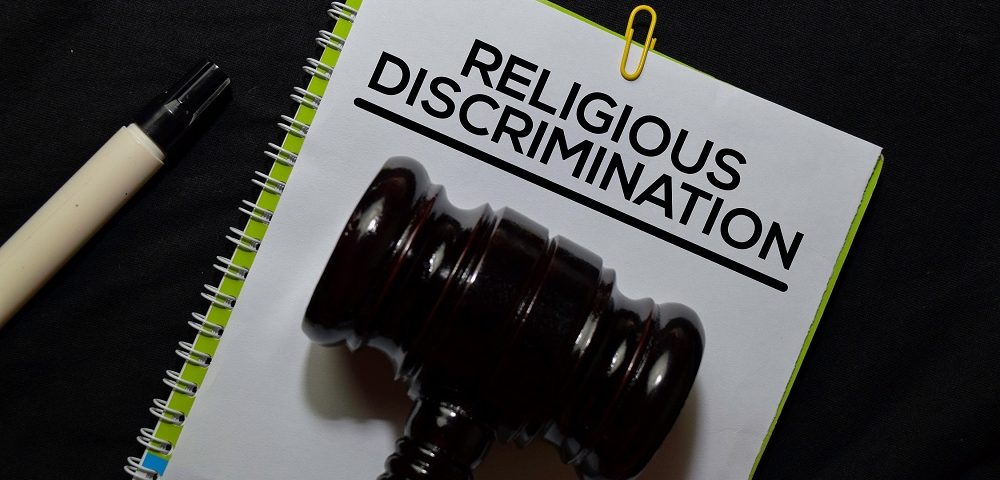The Mental Health Impact of Peer Religious Discrimination

Remote Work and Racial Disparities in the Workplace
July 22, 2024
Recognizing Quid Pro Quo Harassment
August 14, 2024Religious discrimination, particularly from peers, can have profound impacts on mental health, as highlighted by recent studies. This issue, often overshadowed by other forms of workplace discrimination, requires urgent attention and action from both employers and policymakers.
The Nature of Peer Religious Discrimination
Peer religious discrimination refers to negative treatment or harassment based on an individual’s religious beliefs or practices by their colleagues. This can range from derogatory comments and exclusion to more overt acts of hostility and bullying. Unlike organizational policies that might indirectly discriminate, peer discrimination is often direct and personal, leading to more significant emotional and psychological harm.
Insights from Recent Studies
Recent research conducted by the Boniuk Institute at Rice University provides a comprehensive analysis of how peer religious discrimination impacts mental health. The study found that interpersonal forms of religious discrimination, such as verbal or physical assaults, have more severe consequences for mental health compared to exclusionary organizational policies. The researchers noted that discriminatory experiences from peers lead to increased levels of stress, anxiety, and depression among victims.
The study also highlighted that these mental health impacts are consistent across different religious groups, including Christians, Jews, Muslims, and atheists. This indicates that the negative effects of peer religious discrimination are pervasive and not limited to specific religious minorities.
The Psychological Toll
The psychological toll of peer religious discrimination can be devastating. Victims often experience a range of mental health issues, including:
- Anxiety and Stress: Constant exposure to discriminatory behavior can lead to chronic stress and anxiety, significantly affecting one’s daily life and overall well-being.
- Depression: The persistent negative treatment can result in feelings of hopelessness and depression, reducing the quality of life and productivity.
- Social Isolation: Victims may withdraw from social interactions at work to avoid further discrimination, leading to loneliness and isolation.
- Lower Self-esteem: Continuous discrimination can erode self-esteem and confidence, making it difficult for individuals to assert themselves in both personal and professional settings.
Real-life Examples
Consider the case of Sarah, a Muslim woman working in a corporate environment. Despite her qualifications and dedication, she faced daily microaggressions and overt hostility from some of her colleagues due to her religious attire and practices. This constant discrimination led to severe anxiety and depression, eventually forcing her to leave her job.
Another example is John, a Jewish man working in a tech firm, who was often the subject of derogatory jokes and excluded from team activities. The ongoing peer discrimination affected his mental health to the point where he had to seek professional help to cope with the stress and anxiety.
Legal Perspectives and Employer Responsibilities
My name is Ty Hyderally, and I’m an experienced employment lawyer in NY and NJ. As such, I see the detrimental effects of peer religious discrimination on my clients on a regular basis. Employers have a legal and ethical responsibility to create a safe and inclusive work environment. This includes:
- Implementing Clear Policies: Employers must have clear anti-discrimination policies that explicitly include religious discrimination and outline the consequences for such behavior.
- Training and Education: Regular training sessions on diversity and inclusion can help educate employees about the importance of respecting religious diversity and the impact of discrimination.
- Support Systems: Providing support systems such as counseling services and employee resource groups can help victims of discrimination cope with the psychological impact and feel supported.
- Encouraging Reporting: Creating a safe and confidential reporting mechanism encourages employees to report instances of discrimination without fear of retaliation.
The Role of Legal Advocacy
Legal advocacy plays a crucial role in addressing peer religious discrimination. As a lawyer, it is essential to:
- Raise Awareness: Educate clients about their rights and the legal protections available against religious discrimination.
- Provide Support: Offer emotional and legal support to victims, helping them navigate the complexities of filing discrimination claims.
- Advocate for Change: Work with policymakers and organizations to strengthen anti-discrimination laws and promote policies that foster inclusive workplaces.
Combatting Peer Religious Discrimination
Peer religious discrimination is a significant issue that profoundly impacts mental health. It is imperative for employers, policymakers, and legal professionals to work together to address this problem and create a work environment where every individual feels valued and respected. By understanding the severity of the issue and taking proactive steps, we can mitigate the mental health impact of religious discrimination and promote a more inclusive society.
Resources
- https://news.rice.edu/news/2023/rice-study-peer-religious-discrimination-harms-mental-health-more-exclusionary
- https://boniuk.rice.edu/effects-religious-discrimination-mental-health-vs-physical-health
- https://rplp.rice.edu/publications/association-between-religious-discrimination-and-health-disaggregating-types


